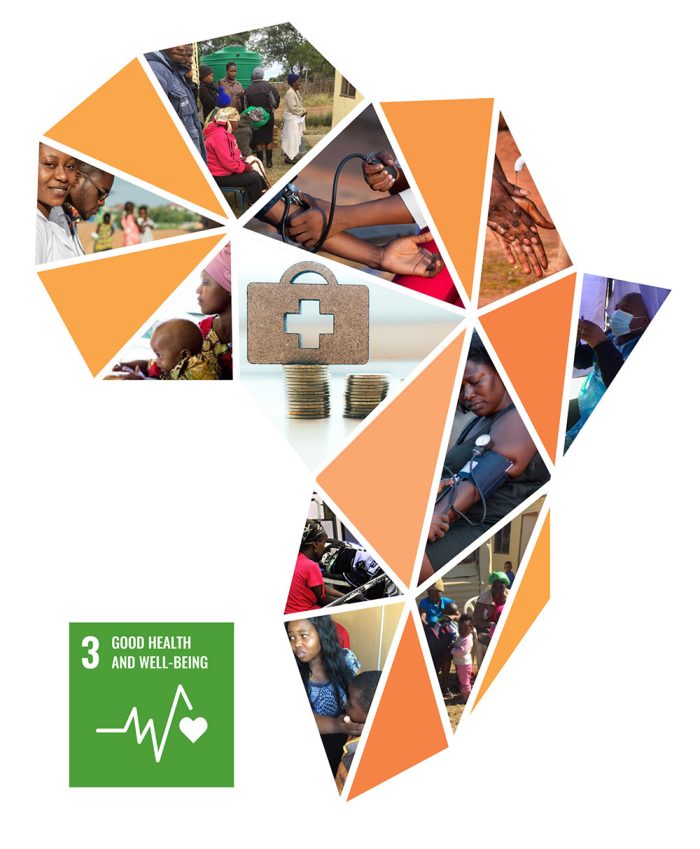Access to Universal Health Coverage
The uncharted times created by COVID have called on governments, institutions and the entire health industry to evolve at a pace never seen before. In the process, it has also become a much-needed catalyst for transforming the healthcare experience from the inside out.
 Firstly, I need to admit that I am no healthcare expert. However, as an organisation, we are acutely aware of societal inequalities in existence today and across the continent. The WHO Constitution (1946) envisages “…the highest attainable standard of health as a fundamental right of every human being.” Our work as the Shared Value Africa Initiative (SVAI), a pan-African organisation, continues relentlessly to lobby, motivate and encourage the private sector to consciously and simultaneously address both their societal and environmental impact, as part of driving their daily operations towards profitability. This, of course, includes health access for all stakeholders.
Firstly, I need to admit that I am no healthcare expert. However, as an organisation, we are acutely aware of societal inequalities in existence today and across the continent. The WHO Constitution (1946) envisages “…the highest attainable standard of health as a fundamental right of every human being.” Our work as the Shared Value Africa Initiative (SVAI), a pan-African organisation, continues relentlessly to lobby, motivate and encourage the private sector to consciously and simultaneously address both their societal and environmental impact, as part of driving their daily operations towards profitability. This, of course, includes health access for all stakeholders.
Delivering on access to health means so much more than just a clinic, a hospital, a health worker, medication or a doctor. It is about truly understanding health as a basic human right – one that taps into the underlying determinants of good health and well-being, such as safe and potable water, sanitation, food, housing, health-related information and education, and gender equality.
Universal health coverage (UHC) is about ensuring that people have access to the health care they need without suffering financial hardship. The World Bank puts it so profoundly “UHC allows countries to make the most of their strongest asset: human capital. Supporting health represents a foundational investment in human capital and in economic growth—without good health, children are unable to go to school and adults are unable to go to work. It is one of the global economy’s largest sectors and provides 50 million jobs, with the majority held by women.”
The sad fact remains: no matter how many commitments we make towards UHC, for example the October 2019 Political declaration of the high-level meeting on universal health coverage, at least half of the world’s population still lacks access to essential health services and out-of-pocket expenses drive almost 100 million people into poverty each year.
My personal observation – informed by my own experiences, desktop research and the media findings – is that there are three industries which benefited enormously from the pandemic. Pharmaceutical; with the race for developing and supplying vaccines. Technology; with people working from home , connectivity is becoming paramount not only for work but also for entertainments and staying connected to family and friends. The retail industry that supplied food and other necessary services and continues to do so. Some interesting facts can be observed in this Financial Times article, which ranked companies that prospered because of and during the pandemic, according to equity value added – and this was in 2020 only. The amount of Market Cap added value is mind blowing.
A question to all these organisations, which made billions out of the pandemic, can shareholders take only a small percentage of the growth and consciously contribute that to UHC and help to make it a reality across the globe? You know who you are; we don’t have to mention names. You have all prospered from the pandemic and it is now time to share that prosperity.
We, as citizens, should lobby governments to create policies aimed at those who have benefited exponentially and continue to gain even more from the pandemic, due to the resulting shift in business dynamics and lifestyles. These policies should ensure that COVID-19 beneficiaries contribute a % of their wealth to a special global UHC fund.
What do you think? Will and can shareholders stomach that, or are we still so focussed on profit-only with no real purpose to contribute towards saving the planet and the human race?
I welcome any input and thoughts from our Shared Value Community and any individual that reads our newsletter. We need a healthy dialogue on fundamental issues such as these.

TIEKIE BARNARD
Founder & CEO




